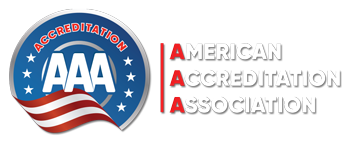Top 10 Advantages of National Accreditation of Schools
An important consideration when selecting an educational institution is whether it is accredited at the institutional level by a recognized accrediting agency. The sort of accreditation plays a role in areas that may affect you as both a student (such as cost or how many credits may transfer if you move schools) and after graduation (such as employability, tuition reimbursement, and job background checks). The importance of accrediting your college or university, the variations between national and regional institutional accreditation, and how to do so are all covered in this guide.
How Schools Are Accredited?
There are two types of accreditation: regional and national. A college, university, or degree program might choose to get accredited voluntarily in order to assure that it meets a universal standard of excellence. This enhances the reputation of a school and its graduates in the eyes of other schools and potential employers. Accreditation of an institution is distinct from that of a specific program, which is discussed in detail below.
US Department of Education does not accredit educational institutions and/or programs, contrary to what many people think. The accreditation process, on the other hand, is overseen by the USDOE and the nonprofit Council for Higher Education Accreditation (CHEA). Accreditation standards are reviewed by federally recognized agencies.
When it comes to accreditation, it doesn’t matter if an institution provides online or on-campus degree programs. Those in charge of making sure pupils get a good education report to the same bodies.
1. Federal financial aid may be available to students who meet certain criteria.
Accredited schools provide students with financial advantages that non-accredited programs cannot. Access to federal loans and grants is the biggest financial advantage of attending an accredited university. In some cases, private lenders may provide preference to students who are enrolled in a nationally accredited beauty program.
2. A demanding course of study
Accredited schools are required to fulfill or surpass national educational performance requirements in order to retain their accreditation. As a result, recognized schools are required to provide a more robust curriculum than non-accredited schools. Technology and adequately equipped classrooms are more likely to be available to them.
3. High completion rates
Attending approved schools increases the likelihood that students will meet all graduation criteria. There are certain accredited schools with 100% completion rates. In many cases, this can be attributed to the high levels of assistance provided by faculty and staff to students.
4. Outstanding faculty and staff
Students who attend accredited schools are more likely to benefit from the higher levels of investment in teacher training that these institutions make. Additionally, approved schools have well-trained support staff to help students stay on track with their studies from the first day of class until they have completed all of their program requirements.
5. Exceptional success rates on licensure exams
Students who attend approved schools have high passing percentages on license exams because of their rigorous curriculum. In order to ensure that students pass their licensing examinations, accredited schools are more likely to support their students throughout their education.
6. After graduating, the prospects of finding a job are much improved
Candidates who have finished their studies at approved institutions are sought after by many employers. For this reason, they believe that graduates of approved colleges are more likely to be well-prepared for the workforce. As a result, graduates of accredited colleges often have an advantage over those from non-approved institutions.
7. In all 50 states, the U.S. Department of Education has officially recognized the program.
If a school is accredited, students have the assurance of completing their studies in an institution with a national reputation for quality. Graduates who have to move from one state to another would appreciate this.
8. Ongoing assistance with finding a job
Graduates of approved colleges receive a high level of ongoing aid in finding employment. Students who need to find new employment at any time in their careers would greatly benefit from this continuing support.
9. Students’ well-being is a top priority
Accreditation has historically been the best evidence of a school’s commitment to honesty and quality education for its students. It’s a shared objective among school administrators, teachers, and other support personnel to make kids feel welcome and driven to succeed.
10. Repeated quality assessments
In order to ensure that accredited schools remain compliant, they are reevaluated every six years. If a school is found to be in need of improvement during an evaluation, the school must take immediate action. The accreditation of a school can be revoked if it does not address any recognized problems.
Conclusion
For students and parents alike, accreditation serves as a mark of approval that ensures that the quality of a school’s operations—from how it is run and how it allocates resources to the quality of instruction, assessment, and programs of study—meets high criteria. However, certification offers educational and community leaders a framework for regularly assessing the quality of the institution they serve and better meeting the requirements of every student.
